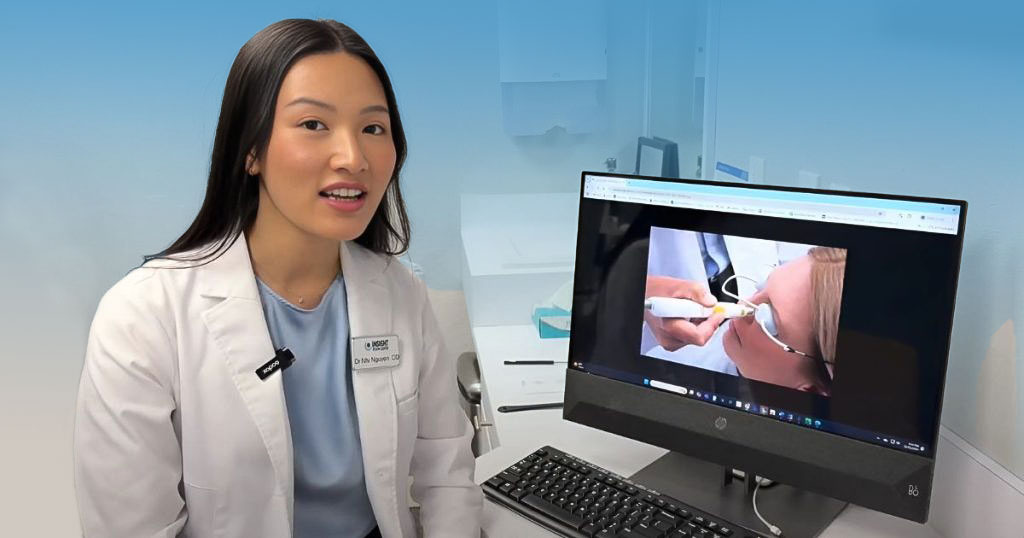
Understanding the connection between dry eye and depression is essential for improving your overall well-being. This page outlines how these two conditions interact, how they can impact your daily life, and the importance of seeking help. At Insight Vision Center Optometry, we are here to address both your eye health needs and mental wellness in the service area.
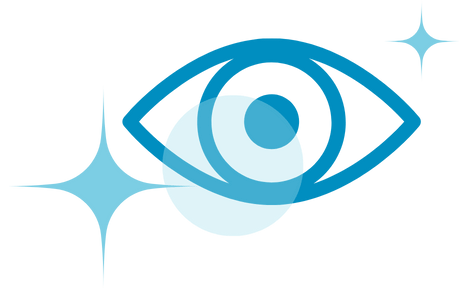
How Depression May Influence Dry Eye Symptoms
Depression can alter your daily routines, which in turn can affect your eye health. For example, individuals with depression may spend more time in front of screens, have irregular sleep patterns, or may not engage in routine self-care, all of which can lead to an increase in dry eye symptoms. Studies, including the one published in JAMA Ophthalmology in March 2022, have found that patients who screen positive for depression tend to report more severe symptoms of dry eye.
The mechanism behind this connection is in part behavioral and in part physiological. Depression can lead to changes in hormone levels and inflammation, both of which are known to affect the quality and quantity of your tears. Additionally, when you are depressed, you might be less likely to notice or properly manage mild eye irritation, which can escalate into a more significant dry eye problem.
Scientific Evidence for the Relationship
Multiple studies have provided compelling evidence for a link between dry eye and depression. In one significant study, a total of 36.7% of the participants reported experiencing dry eye symptoms while 23.7% were diagnosed with depression, anxiety, or stress. Researchers found that among patients with moderate to severe dry eye disease, those with depression often exhibited even more pronounced dryness and discomfort.
Researchers believe that this relationship could be explained by several overlapping factors. For one, some antidepressant medications are known to reduce tear production, directly worsening dry eye symptoms. Moreover, the physical discomfort of dry eye might increase psychological stress, setting off a vicious cycle that perpetuates both conditions.
In another study published in the American Journal of Ophthalmology, analysis of patient records demonstrated that individuals with dry eye disease had more than three times the risk of developing mental health disorders, including depression and anxiety. This evidence reinforces the idea that the connection between the two conditions goes far beyond surface-level symptoms.
Shared Risk Factors Between Dry Eye and Depression
Several factors put individuals at risk for both dry eye and depression. For instance, hormonal changes—especially during menopause—are known to reduce tear production and are also associated with a higher incidence of depressive symptoms. Additionally, lifestyle factors such as extended screen time, which is common in today’s digital era, can exacerbate both dry eye and depressive feelings.
Other shared risk factors include:
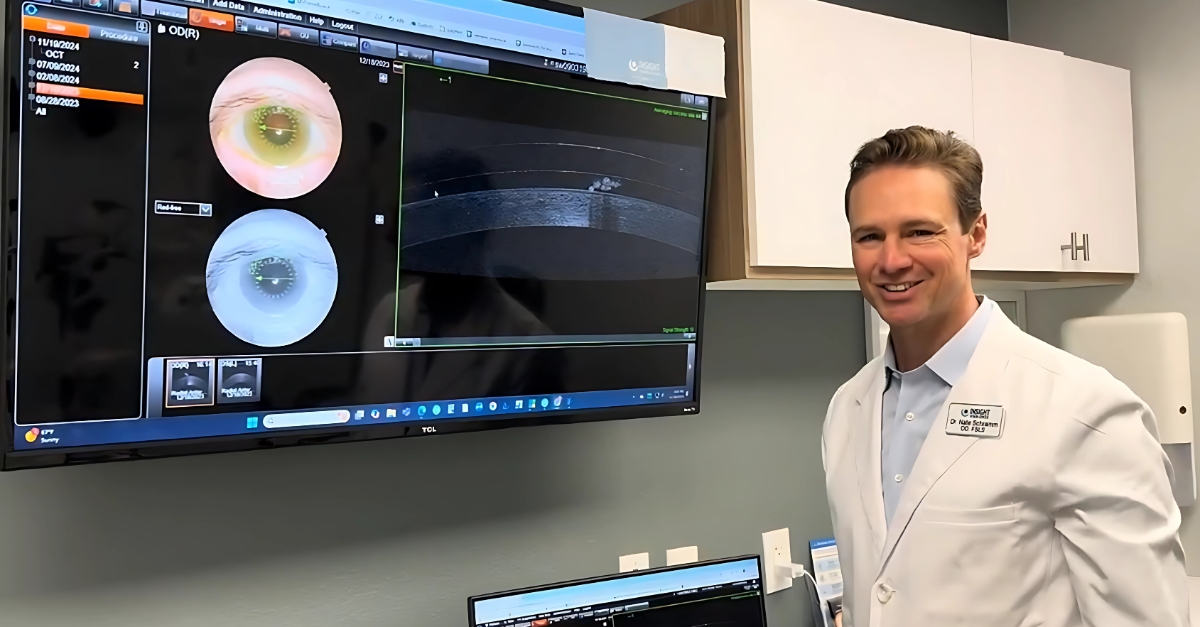
How Lifestyle and Behavioral Factors Play a Role
Your daily habits can often be the bridge between mental health and eye health. For example, if you spend long hours looking at a computer screen without taking breaks, you may strain your eyes and reduce your blink rate, leading to poor tear distribution and resulting in dry eye symptoms. If you are suffering from depression, these habits can become even more pronounced because of reduced motivation to change daily routines.
Moreover, depression can lead to changes in your sleep pattern. Poor sleep quality not only affects your mental health but also deprives your eyes of the rest they need to maintain an adequate tear film. This combination of behavior changes creates a perfect storm where both dry eye and depression feed into each other.

Medications and Their Dual Impact
It’s important to note that medications used to treat depression, such as selective serotonin reuptake inhibitors (SSRIs), have been found to potentially cause dry eye symptoms. According to a white paper by the Tear Film and Ocular Surface Society, medications such as Amitriptyline, Nortriptyline, Sertraline (Zoloft), Fluoxetine (Prozac), are considered to be established causes of dry eye. Medications that work by altering neurotransmitter levels, can also reduce the tear gland function. This means that even as these medications help manage depressive symptoms, they might inadvertently worsen the discomfort of dry eye, which in turn may lead to an increase in depression symptoms.
For patients experiencing both conditions, be sure to let our eye doctors know about your current mental health medications. Adjustments to treatments might be considered with the aim of reducing dry eye symptoms without compromising mental health.
Diagnostic Approaches: When Subjective and Objective Findings Differ
Interestingly, research has shown that patients with depression may report more severe symptoms of dry eye than what is evident through clinical examination. In other words, while they might describe their eyes as burning or experiencing pain, objective tests measuring tear production or ocular surface condition might not always show a corresponding level of severity.
This discrepancy suggests that our perceptions of pain and discomfort can be amplified by one’s mental state. When depression heightens our awareness of physical sensations, even milder symptoms of dry eye may seem intolerable. Understanding this overlap is crucial for our eye doctors when they develop treatment plans that address both the physical and emotional aspects of your condition.
Impact on Quality of Life
Both depression and dry eye significantly affect your quality of life, albeit in different ways. Dry eye can make simple tasks like reading, driving, or using digital devices frustrating and even painful. On the other hand, depression can diminish your pleasure in activities you once enjoyed, making you feel isolated or hopeless.
When these two conditions co-exist, their combined impact can be profound. The discomfort from dry eye may limit an individual’s ability to perform daily activities, which can then lead to feelings of frustration and a worsening mood, further fueling depressive symptoms. This interplay suggests that treating dry eye might have downstream benefits for mental health, and vice versa.
The Latest Research and Reviews
Recent meta-analyses have further solidified the connection between dry eye disease and depression. For instance, an umbrella review of multiple studies confirmed that patients with symptoms of dry eye are significantly more likely to report depressive symptoms compared to those without eye discomfort. Moreover, these reviews highlight that the severity of dry eye may correlate with the severity of depressive symptoms.
Some researchers propose that the chronic inflammation associated with dry eye disease could play a role in the development of depression. Inflammatory cytokines, which are elevated in both conditions, might lead to changes in brain function that result in or exacerbate depression. Although more research is needed to pinpoint the exact mechanisms, the evidence so far suggests that these shared molecular pathways are worth exploring.
What Does This Mean for Treatment?
If you’re dealing with frequent dry eye symptoms along with feelings of depression, it is important to approach your treatment in a holistic manner. Our eye doctors are not only focused on treating the physical aspects of dry eye but also on understanding how these symptoms may be affecting your mental health.
At the same time, addressing depression—whether through counseling, lifestyle adjustments, or medication review—can also have a positive impact on your eye health. It is a two-pronged approach where pacing, self-care, and seeking professional advice for both conditions are essential.
When to Seek Professional Help
If you notice persistent dry eye symptoms such as constant burning, redness, or fluctuating vision, especially when accompanied by signs of depression like persistent sadness or loss of interest in activities, it is important to seek help sooner rather than later. Early intervention can help break the cycle, ensuring that both your eye health and mental health receive the attention they deserve.
Do not hesitate to schedule an appointment with our eye doctors if you feel that your symptoms are interfering with your daily life. They are available to provide personalized guidance and to discuss treatment options that address the full spectrum of your concerns.
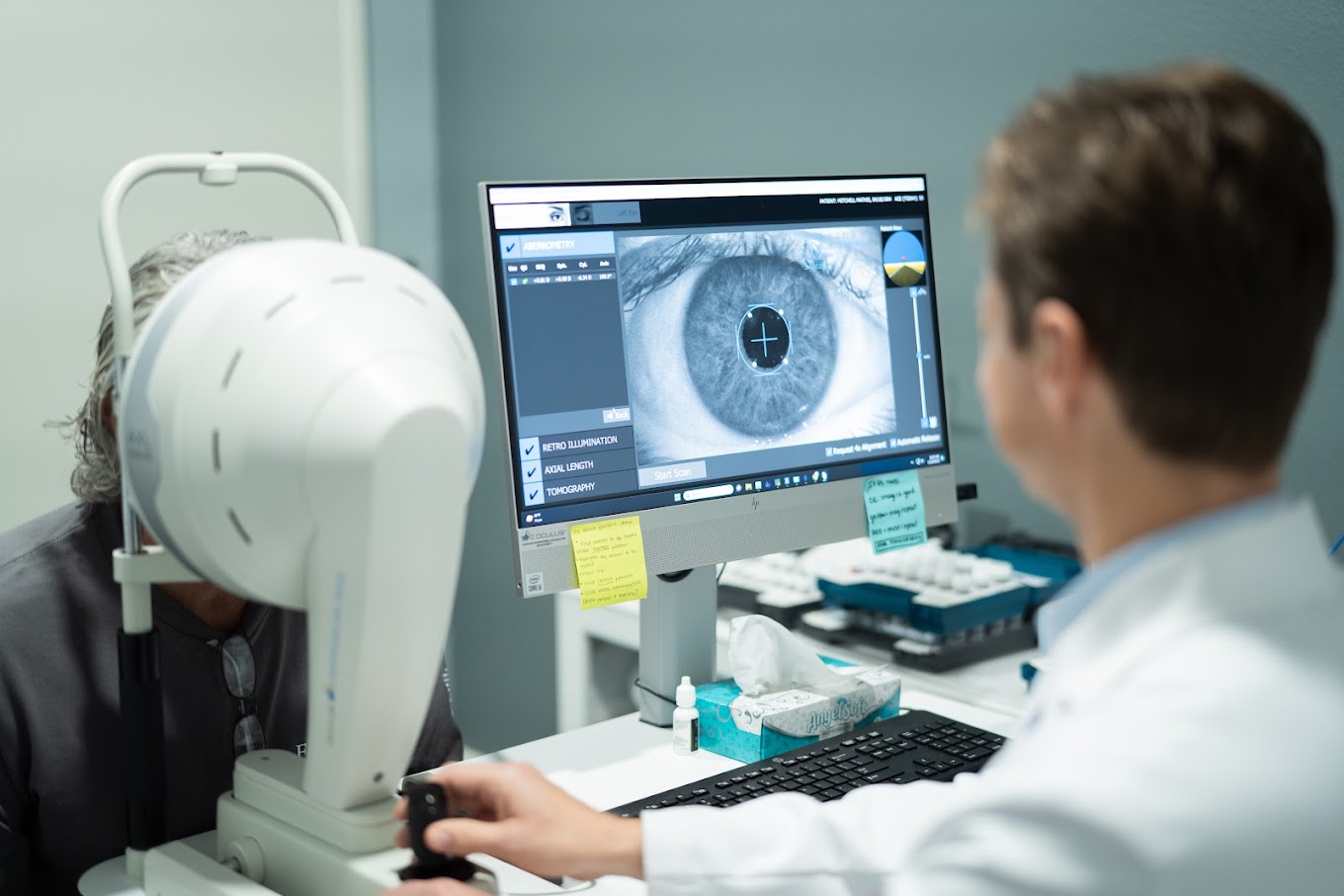
What Future Research Might Bring
The relationship between depression and dry eye is an active area of research. Scientists are still exploring the underlying mechanisms that connect these two conditions, including the role of inflammatory markers, hormonal changes, and neurological pathways. Future studies may offer even more detailed insights that could lead to innovative treatment options.
In the meantime, the evidence supports a close connection between dry eye symptoms and depression. With ongoing research, we hope to better understand whether treating dry eye can improve depressive symptoms and vice versa, ultimately leading to more effective, personalized care.
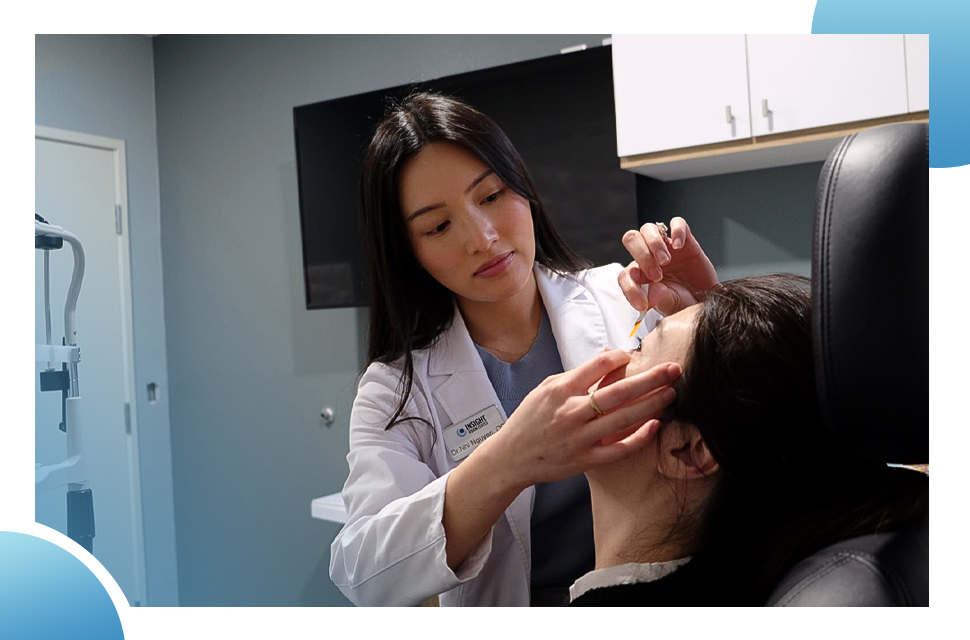
Key Takeaways
The link between depression and dry eye is complex and bidirectional. On one hand, depression can increase the reporting and severity of dry eye symptoms through both physiological changes and altered daily habits. On the other hand, the constant discomfort and restrictions imposed by dry eye can negatively impact your mental health, sometimes leading to or worsening depression.
Few key points to remember include:

The Highest Rated Advanced Eye Care Center In Orange County

What Our Patients are Saying
“I love this office! The staff is so friendly, helpful, and welcoming. Dr. Lam has helped with my dry eye symptoms and myopia and takes the time to explain things thoroughly. I never feel like she is rushing me out of the office to see the next patient. She is extremely knowledgeable and I feel very well cared for. I highly recommend this office!”
⭐⭐⭐⭐⭐
Elaine N.
“More recently I had an issue with super dry eyes and they provided me multiple solutions and care instructions to heal them quickly. What I like is that it’s not all about just solving the issue, they taught me about long term care and what to change to ensure my eyes get the hydration they need.”
⭐⭐⭐⭐⭐
Maria M.
Moving Forward with Integrated Care
If you’re experiencing any symptoms of dry eye along with mood changes or feelings of depression, it is important to remember that help is available. Our eye doctors take a compassionate, integrated approach to your care, ensuring that both your vision health and emotional wellbeing are considered. Asking the right questions and addressing the full scope of your symptoms can lead to treatment plans that improve your overall quality of life.
Remember, managing dry eye may not only improve your comfort and vision but could also uplift your mood. The simple act of taking care of your eyes is a step towards taking better care of yourself. A comprehensive treatment strategy might include adjustments to medication, lifestyle changes, and even referrals to mental health experts when necessary.

When to Call Our Office
If you have been dealing with persistent dry eye symptoms, or if you notice that your eye discomfort is affecting your mood and overall quality of life, please do not wait to reach out. Our eye doctors are here to evaluate your symptoms, discuss any concerns you may have regarding depression or anxiety, and help create a treatment plan that supports both your physical and emotional health.
A proactive approach can not only relieve the physical discomfort of dry eye but also help prevent the negative cycle where untreated eye symptoms contribute to worsening mental health. Call our office today for personalized guidance and care tailored to your specific needs.
If you have any concerns or need personalized advice about your dry eye symptoms or mental health, please don’t hesitate to call our office. We’re here to work with you every step of the way to improve your vision and enhance your quality of life.

Why choose Insight Vision Center Optometry in Costa Mesa, CA, for Dry Eye Treatment
Insight Vision Center Optometry is a premier advanced eye care clinic in Orange County, known for its expertise in managing dry eye and ocular surface diseases using advanced treatments. With over 600 positive patient reviews and a 4.9-star rating on Google and Yelp, our highly trained eye doctors utilize state-of-the-art IPL and other technologies to deliver safe and effective treatments.
If you’re interested in exploring Dry Eye Treatment, contact Insight Vision Center Optometry in Costa Mesa, CA
Call us at (714) 942-1361 to book your appointment, or schedule online.





